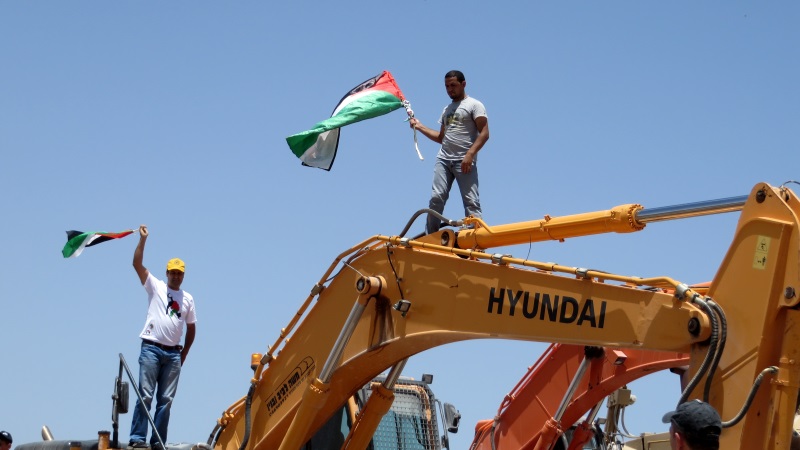Tag: Demonstration
-
Photo story: Palestinians march in Tulkarem to defend their right of return
31th May 2014 | International Solidarity Movement, Nablus team | Tulkarem, Occupied Palestine On the morning of the 31st of May, several buses filled with Palestinian and international activists from across the West Bank gathered in Tulkarem to march towards the Natanya checkpoint, used only by the Israeli military forces. Political groups, Palestinian civil society and…
-
Photo story: Nablus rally in solidarity with political prisoners
On the 26th of May, more than 500 people joined a demonstration in Nablus in solidarity with Palestinian political prisoners and hunger strikers. Starting from the city’s main square, they then marched through some of the main streets of Nablus. On the 24th of April, over 100 Palestinian political prisoners, many of whom are held under administrative…



